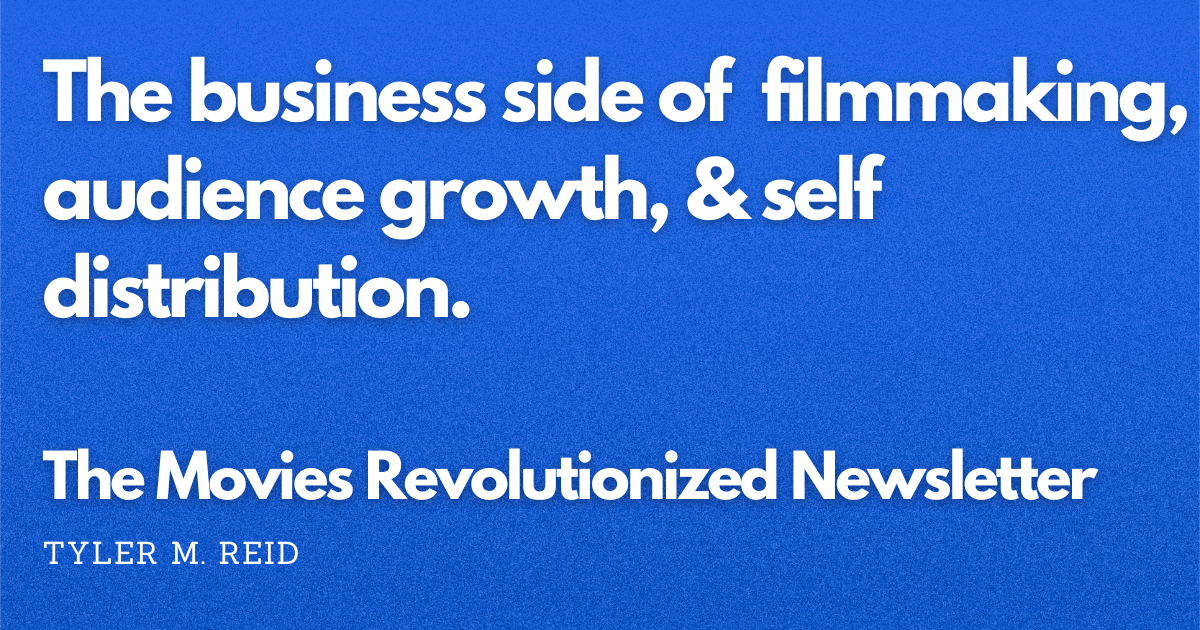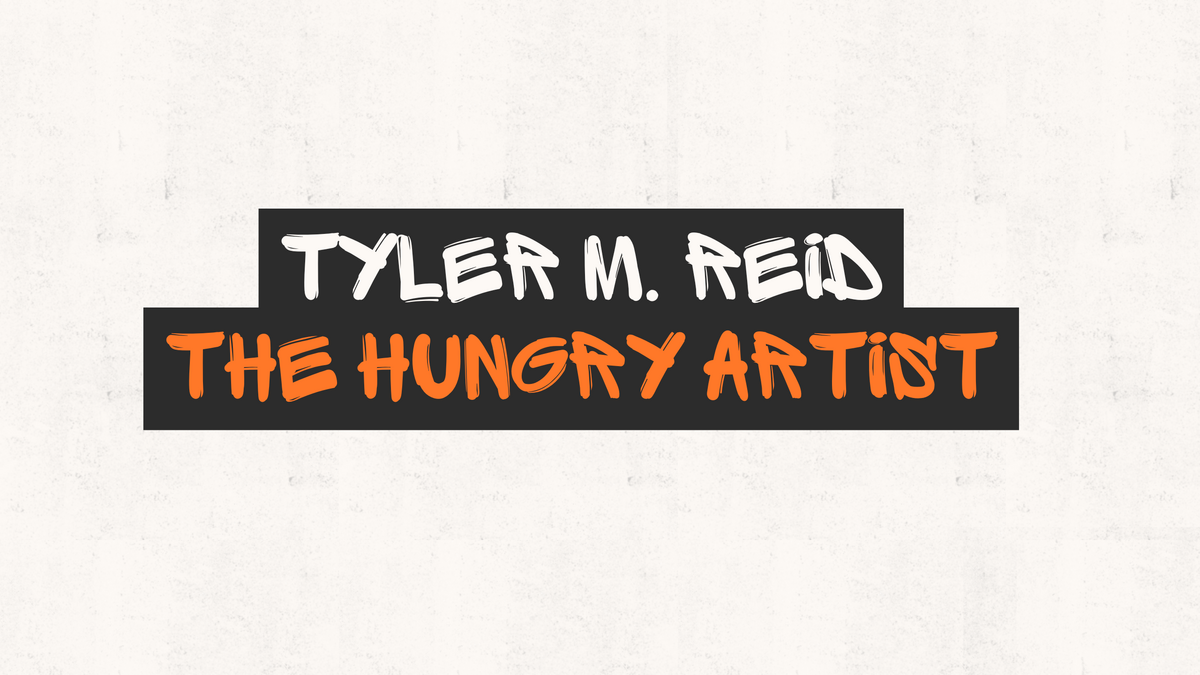There’s a Gate and I want to Break Through
While you are on your indie filmmaking journey, you may also find yourself wanting to reach out to bigger producers, managers, agents, studio executives - there are all kinds of people you’re eager to reach. Most of the time, those people will have assistants who guard a gate in between you and the person you are trying to reach.
There have been so many times I’ve heard or even been asked the question: “How do I get through the assistant to talk to XYZ”.
You may find yourself sending the same email and making the same phone call only to hear back from the assistant who is stopping you from speaking to the person you really want to talk to.
Why else do they call them gatekeepers. They are a barrier to the important people you want to talk to. If you could only get through them, then you KNOW for sure the person on the other end like the Producer or the Agent will immediately say yes to you or your project!
The problem here is that you are looking at assistants as a barrier instead of the keyholder.
These are people who have the power to open doors for you and they should be seen as an ally not a barricade. It’s more than just being kind and showing respect. An ally is someone you partner with and trust. That is what you need to build with assistants.
Empathy Creates Understanding
When you empathize with an assistant you can then better understand what they do, but even more than that, who they are.
Assistants often manage the day-to-day schedules, emails, and calls of Executives. I’m going to use the word Executive from here on out to refer to anyone that would have an assistant be it a Producer, Manager, Agent, Studio, and so on. The assistant is the first point of contact to the Executive - which means it is their job to really KNOW the Executive. Know how they like their schedule laid out , how they like their meetings set up, how they like their lunch, the projects they like, and the type of people they like to work with.
That is the key! The assistant will not only know the mundanity of the ins and out of their Executive, but they will also know what it is the Executive is looking for in the next project - everyone is looking for the NEXT project.
There is one more very important part of what an assistant does and what they want. Most assistants want the same kind of job their boss has. They want to be a producer or agent or executive. Just like the assistant, their boss probably started in the same type of role.
This is the second most important key. Assistants want to also find the next great project because it gives them a faster road to get off the assistant desk and into the executive desk.
So now you can emphasize with the assistant. You both want the same thing, you want a project that will launch you into your career. Which means you don’t want to focus on the Executive, you want to focus on the assistant.
Focus on the Assistant
So now that you can empathize with them, understand their goals, and understand that one day they will be an executive, you can now begin to operate differently. Your goal now isn’t to get past the gatekeeper, but to befriend the gatekeeper who not only will walk you through the gate, but will remember you years later when they are an executive. This is how you create an industry ally, not just an ally in this moment at that gate but an ally you can call on for years to come in your career.
Calling the office is always more powerful and beneficial than emailing. It is very easy to ignore an email. How many emails do you ignore a day? You aren’t even an assistant receiving hundreds of emails. Assistants will ALWAYS answer phone calls because that is a big part of their job, they don’t want to miss a call that should quickly go through to their boss.
When you call, you aren’t asking to speak with the Executive, you are going to be asking to speak with the assistant, which will surprise and delight them.
Let’s run through an example scenario. In this scenario you have a screenplay that you think would be perfect for the Executive you are calling - you know, we all know, it’s going to be a great project and obviously the Executive should be attached.
In a classic scenario it would be something like:
Ring ring ring. Assistant answers.
“This is the desk of XYZ how can I help you?”
“My name is Tyler and I have a project I think Executive will love, can I speak with them?”
“Executive is not available right now, but you can email the logline/synopsis to me at [email protected].., and we will try to get back to you shortly, have a great day” CLICK
In that scenario you are doing the same thing everyone else is doing. You aren’t special, you aren’t unique, you aren’t even a person in the assistant’s mind. You have just become another task on their endless list of tasks.
Instead, what you want to do, is reach out to the assistant by reaching out to the assistant.
Your new scenario:
Ring ring ring. Assistant answers.
“This is the desk of XYZ how can I help you?”
“My name is Tyler and I have a project but I don’t know if it would be a good fit for Executive. I know (Assistants Name) you are busy and this is probably a strange request, but I would be interested in getting your opinion on my project.”
Then leave that just sitting there, let it sink in for a couple of seconds that you are asking them for their opinion. This is a special moment for them too - for the first time that day, maybe that week, maybe even that month, someone calling is acknowledging them as a person and not just a barricade between the caller and the executive.
They may say something like “you want my opinion?” or if they say nothing at all when you give that couple of second pause, you can continue with:
“You probably see projects all the time and know which ones are bad and which ones are good and which ones you think Executive would want you to take to them”
You have now planted the seed of giving them the ability to bring a good project to the Executive.
“Since you see so many projects, honestly your input would probably be some of the best I would get. Is it okay if I send you the project? Would it be okay to call back again in a week or so to talk about the project?”
End of scenario.
I have no idea what will happen from here. I wish I could say that every assistant will say yes and be eager to look at your project. People are different and some may say yes and some may say no. I will say this though, if you try that 100 times you will get far more success than if you send 100 cold emails or in those 100 calls just instantly ask for the Executive.
When I was planning out this article, I reached out to a few assistants that I know well and asked them what they thought of this scenario - all of them loved it. Again, just because of them loving it still, doesn’t mean it will work every time.
The important thing they did tell me though, was that no matter what, they would for sure remember the name of the person who did that. Respect and empathy go a long way.
Even if that assistant can’t help you now, they may still remember you many years later when they’re an executive.
Even before they become executives, they may be assistants for a few more people in their career and when they go to a new executive - your project may be the one the assistant remembers and sets up a call with you and their new executive.
When you create that ally they may even recommend you to other assistants or executives.
That is really what this business is about. It’s about building connections and a network. This is not just for assistants but for so many other people you will need as ally’s in your journey.
You aren’t the only one wanting to succeed. Everyone wants the same thing. When you are speaking with someone, remember they want to succeed also and when you can empathize and connect with them, you leave out a hand for them to join you in your connections and network.
There are two ways I can help you.
I give away a free bundle with example pitches, templates, and interactive budgets that you can grab right here.
If you are on your journey to make your first short film, documentary, or even micro budget feature, this course is designed to help you find money, grow your audience, and earn an income.


